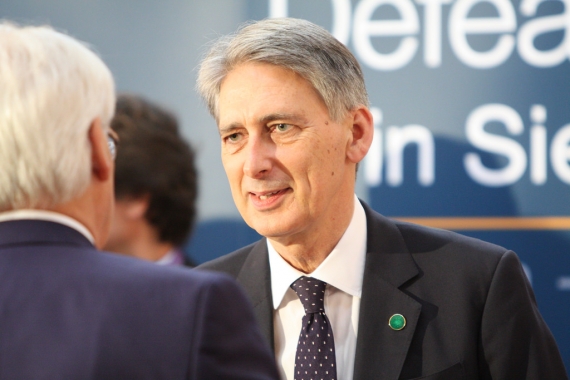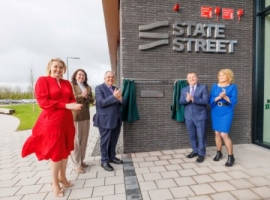
Britain's progress towards life outside the European Union became more entangled on Friday, with divisions deepening over Northern Ireland's border and even the type of divorce Britain actually wants.
It came as the EU's top negotiator warned that formal talks are set to be delayed, eating up more of the two-year divorce timetable.
Negotiations on the future relationship between Britain and the EU are now less likely to start in October due to a lack of progress at the initial stage of talks about the breakup, Brexit negotiator Michel Barnier has told EU ambassadors.
Britain responded that it was confident that enough progress could be made to start the second stage of talks but as Prime Minister Theresa May holidayed in Italy, her ministers engaged in a public debate about how Brexit how should look.
Finance minister Philip Hammond, who opposed leaving the EU in last year's referendum and has one eye on the business community, said there should be no immediate change to immigration or trading rules when Britain leaves.
A shift to new arrangements could last until mid-2022, he said in a BBC radio interview, adding that he wanted to avoid a cliff-edge. He stressed that British hospitals and care homes relied as much on EU migrant workers as many businesses.
"We've been clear that it will be some time before we are able to introduce full migration controls between the UK and the European Union," he said.
May's loss of her majority in the British parliament with a botched gamble on a snap election has prompted an apparent softening of rhetoric on Brexit. But some EU member state diplomats say it now hard to discern what Britain wants.
Britain has less than two years to negotiate the terms of the divorce and the outlines of the future relationship before it is due to leave in late March 2019. Both sides need an agreement to keep trade flowing between the world's biggest trading bloc and the fifth largest global economy.
"In the immediate aftermath of leaving the European Union goods will continue to flow across the border between the UK and EU in much the same way as they do now," Hammond said.
Britain's economy weathered the immediate shock of last year's vote to leave the EU much better than the government and most analysts had predicted.
But growth in the first half of this year has been the weakest since 2012, and earlier on Friday a closely watched consumer survey showed sentiment was its weakest in a year. Households viewed the economy as the worst in four years.
BREXIT TRANSITION
May expects what she calls an implementation phase but she has given few details of how it would look. Any such deal will also be subject to discussion with the other 27 EU members.
Hammond's tone, meanwhile, is sharply different that of some other senior ministers in May's cabinet who want a cleaner break with the EU including swift controls on immigration.
It was unclear whether Hammond's proposals would become government policy though the implications could be far reaching.
The proposals could be read to mean that Britain would continue to pay into EU coffers during the transition, continue to accept EU laws and even effectively accept its four freedoms allowing free movement of people, capital, goods and services.
"I am not sure if they fully know what they want themselves," one EU official who spoke on condition of anonymity said. "I think that in Britain itself the dust has not settled yet."
The Financial Times reported earlier on Friday that Hammond hoped for an "off-the-shelf" transition deal with the EU that would preserve existing trading arrangements for at least two years, followed by a further implementation phase.
The European Commission said that discussions about a potential Brexit transition period could only begin one divorce issues are settled.
"Once you know where you are going you can also consider the modalities of getting there. One thing at a time," a Commission spokesman said.
Before talks on a transition can begin, the EU wants to settle three main points: the future rights of expatriate citizens, the exit bill Britain has to pay and how to avoid the reimposition of border controls between the Republic of Ireland and the British province of Northern Ireland.
Neither side has proposed a solution to the Northern Ireland issue, which remains sensitive almost two decades after a peace deal ended years of violence in the province.
In the latest wrinkle, The Times newspaper reported that the Irish government's preferred option is for customs and immigration checks to be located away from the land border and at ports and airports.
That would effectively draw a new border in the Irish sea -- possibly meaning one between Britain and its province.
The idea drew the fury of the Democratic Unionist Party (DUP), the Northern Irish protestant politicians who are propping up May's minority government.
"1 of 2 things will now happen 1. A very hard border 2. Ireland will wise up and leave the EU," Ian Paisley Jr, a DUP member of the British parliament, said on Twitter. (Reuters)
Source: www.businessworld.ie

















